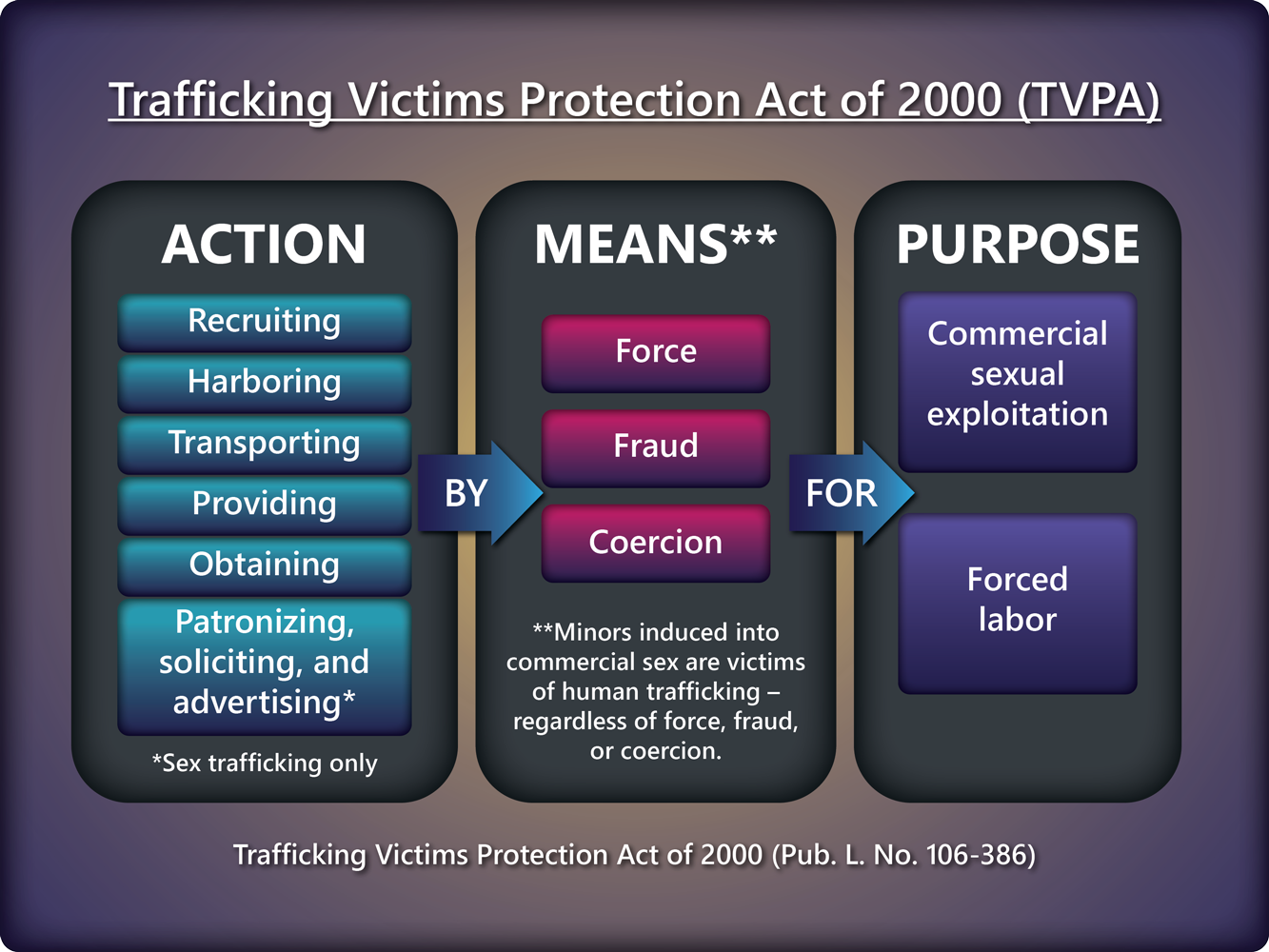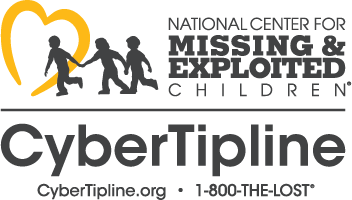What is Human Trafficking?
What is Human Trafficking?
Play the video to learn about the basics of human trafficking.
Grace: Hey, Grace and Kiley here!
Kiley: And we're here to explain to you what human trafficking actually is, so you can understand why you’re here and what you need to be looking out for to protect yourself and your friends and family from being a victim of it.
Grace: You’ve probably seen it in movies or read about it in a newspaper article. Usually those cases are about international trafficking and it's one of those things that sounds scary, but it's not like it's going to impact your daily life, so why worry about it. Well, unfortunately, it is a problem that’s happening everywhere, even in the U.S. How it happens is not as obvious as movies make it out to be.
Kiley: I know, surprising, right?
Grace: But it’s important to broaden your understanding of what it means to be trafficked.
Kiley: Human trafficking is a process that can be broken up into three parts. An action, the means or the way the action is carried out, and the purpose of the action. The actions and ways they are carried out are not always the same, but if the purpose is to force someone to work or have commercial sex, then it’s considered to be human trafficking.
Grace: But how exactly does anyone find themselves in a situation where a person is forcing them to work or have sex for money? Well, human traffickers know that no one would willingly want to do anything for them, so they’ve come up with ways to trick people into those situations. They know who the easiest victims are for their traps: anyone with dreams. It’s as simple as wishing to connect with someone over the internet or getting the chance to make some money or to be famous or to have a better life. If you want something and may even be desperate to get it, you are the perfect candidate for a trafficker's attention.
Kiley: So first, human trafficker will act. They’ll recruit you by getting you to meet up with them somewhere or offering to transport you to a location. You want to be a model? Perfect, I have a free ticket to our modeling agency. If you meet me at this specific location, we can take a few pictures and get them to the right people.
Grace: Traffickers find ways to get you under their spell and into their possession and once they have you, they can move you around, trade or sell you to other traffickers, and hide you from authorities to prevent you from getting away.
Kiley: So, most people believe they could not be tricked into flying somewhere to meet a complete stranger. But traffickers are not always this obvious. The means by which traffickers exploit their victims is a big part of why they’re often successful. Forcing someone into trafficking by kidnapping them is often the way trafficking is depicted in movies, but it’s not the way it usually happens in real life.
Grace: Yep, traffickers may wine and dine a target, take them out to nice places, buy them nice clothes, even pretend to be in love with their victim. Or they might do something like offer to pay you a good salary for some work you do for them, but once it’s done, they’ll not pay you what they should or not pay you at all.
Kiley: Traffickers usually start using their charisma to build trust, but they often end up using threats, intimidation, and even violence to keep you doing what they want and to prevent you from leaving or reporting them. For example, someone you trust might convince you to send them a few private or even naked images of yourself and when they have them, they threaten to share them with people unless you do what they want.
Grace: There are so many ways that someone can get caught up in human trafficking, and we'll explore more examples throughout this course, but I have one more very important thing to add here. I know we just mentioned that human trafficking involves being tricked or forced into commercial sex. That’s true only if you’re 18 years old or over. If you’re under 18, no force, fraud or coercion is required. Anyone under 18 is automatically considered a victim of trafficking if there is an exchange of sex for money or anything of value. This can include exchanging sex for a place to stay, food, clothing, toys, trips, drugs, or anything else that has value. So, if you’re under 18, it is never legal for anyone to offer you anything for sex.
Kiley: I’m glad you pointed that out! That’s important to know. OK, that's our time. We hope our examples helped to clear that terminology up for you a little bit more and remember that human trafficking may not be as easy to spot as you thought.
The Actions, Means, and Purpose (or AMP) model illustrates the Trafficking Victims Protection Act (TVPA) definition of human trafficking by exploring the key themes of action, means, and purpose.

At any time during this training, call the National Center for Missing & Exploited Children Hotline at 1-800-THE-LOST (1-800-843-5678) to speak to someone about anything in this training that concerns you.

To report an incident online, fill out a report here: CyberTipline
